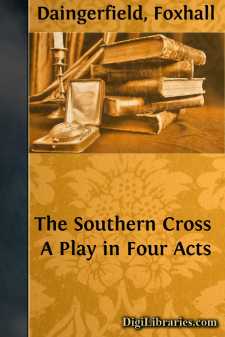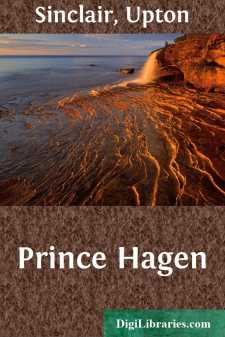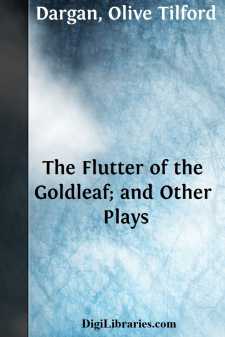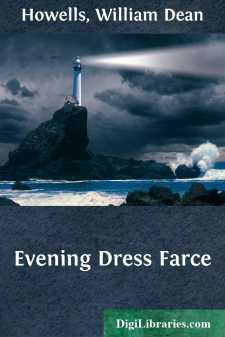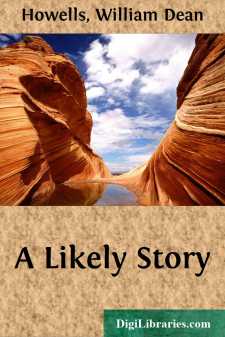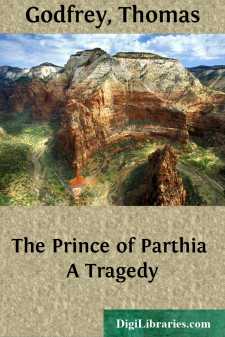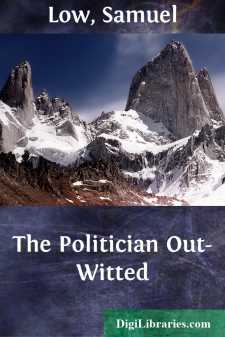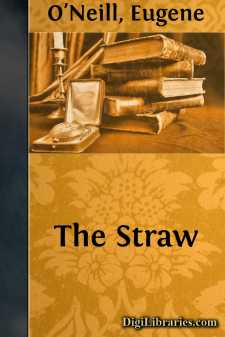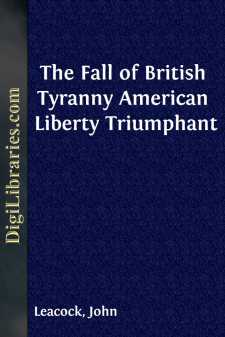Drama
American Books
Sort by:
ACT I. Outside the Stuart home, May, 1864. The large beautiful lawn of a typical Southern home. On the left and partly at the back stands the house, of colonial build, a wide porch running the entire length of the house, with three broad, low steps leading down to the garden. Many vines, mostly wisteria, in full bloom, cover the walls and some climb around the banisters. The porch has four white...
more...
by:
Upton Sinclair
ACT ISCENE I[Shows a primeval forest, with great trees, thickets in background, and moss and ferns underfoot. A set in the foreground. To the left is a tent, about ten feet square, with a fly. The front and sides are rolled up, showing a rubber blanket spread, with bedding upon it; a rough stand, with books and some canned goods, a rifle, a fishing-rod, etc. Toward centre is a trench with the remains...
more...
THE FLUTTER OF THE GOLDLEAF Scene: Laboratory in the attic of the Warner cottage. At right, toward rear, entrance from down-stairs. A rude partition, left, with door in centre. Window centre rear. Large kitchen table loaded with apparatus. Shelves, similarly loaded, against wall near table, right. Wires strung about. A rude couch, bench, and several wooden chairs. Time, about 8 p.m. Lamp burns on...
more...
by:
Horace Holley
INTRODUCTION The first two or three of these "plays" (I retain the word for lack of a better one) began themselves as short stories, but in each case I found that the dramatic element, speech, tended to absorb the impersonal element of comment and description, so that it proved easier to go on by allowing the characters to establish the situation themselves. As I grew conscious of this...
more...
Mrs. Edward Roberts: "Now, my dear, Amy and I will get there early, so as to make up for your coming a little late, but you must be there for the last half, at least. I would excuse you altogether if I could, for I know you must be dead tired, up all night, that way, on the train, but Mrs. Miller is one of those people who never can listen to reason, and she would take deadly offence if you missed...
more...
Mrs. Campbell: "Now this, I think, is the most exciting part of the whole affair, and the pleasantest." She is seated at breakfast in her cottage at Summering-by-the-Sea. A heap of letters of various stylish shapes, colors, and superscriptions lies beside her plate, and irregularly straggles about among the coffee-service. Vis-à-vis with her sits Mr. Campbell behind a newspaper. "How...
more...
by:
Thomas Godfrey
THOMAS GODFREY, Jr. (1736-1763) Thomas Godfrey, Jr., was born in Philadelphia, on December 4, 1736, the son of a man who himself won fame as an inventor of the Quadrant. Godfrey, Senior, was a friend of Benjamin Franklin, the two probably having been drawn together by their common interest in science. When Godfrey, Senior, died, December, 1749, it was Franklin who wrote his obituary notice. Young...
more...
by:
Samuel Low
Very little is known about the author of "The Politician Out-witted," a play which I have selected as representative of the efforts of the American drama, as early as 1789, to reflect the political spirit of the time. Assiduous search on the part of the present editor has failed to bring to light any information from any of the historical societies regarding Mr. Low, except that he was born on...
more...
by:
Eugene O'Neill
Act One Act One: Scene One The kitchen of the Carmody home on the outskirts of a manufacturing town in Connecticut. On the left, forward, the sink. Farther back, two windows looking out on the yard. In the left corner, rear, the icebox. Immediately to the right of it, in the rear wall, a window opening on the side porch. To the right of this, a china cupboard, and a door leading into the hall where the...
more...
by:
John Leacock
JOHN LEACOCK Among the elusive figures of early American Drama stands John Leacock, author of "The Fall of British Tyranny," published in 1776, in Philadelphia. Even more elusive is the identification, inasmuch as his name has been spelled variously Leacock, Lacock, and Laycock. To add to the confusion, Watson's "Annals of Philadelphia," on the reminiscent word of an old resident...
more...


